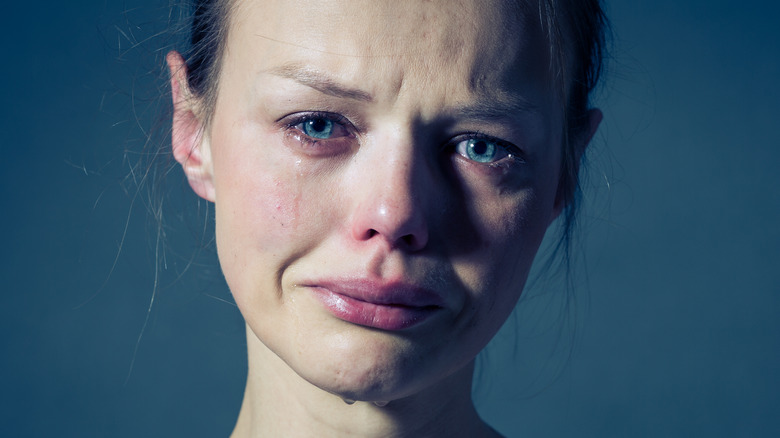What Happens To Your Body When You Cry Wow You Should See This

What Happens To Your Body When You Cry As a result, it causes your glottis—the opening between the vocal chords in your throat—to swell up, making your throat feel full and tight. “the body is trying to protect you so you don’t. Helps relieve pain. the endorphins your body releases when you cry can help alleviate certain types of pain. the physical act of crying also activates your parasympathetic nervous system, which helps promote relaxation, reduce stress, and may help manage pain. the emotional release that comes with crying also helps to diminish feelings of.

What Happens To Your Body When You Cry Crying does have an effect on your body — some of them positive — and much depends on what type of tears you're shedding. according to dr. nick knight, there's even more than one way to cry — there are three. your body can produce basal, reflex, and psychic tears. basal tears are responsible for keeping your eyes moist, reflex tears are. 10. about 10% of people actually feel worse after crying. 11. whether or not somebody benefits from crying depends a lot on the people surrounding them. if they provide support and comfort, the. Through crying. it causes the opening between your vocal cords to swell and feel tight, resulting in the typical lump in the throat that you feel when you’re about to cry. also, your heart rate tends to speed up and your voice becomes shaky. the sympathetic nervous system protects us from emotional intensity by crying. We do know that crying increases endorphins, the body’s natural feel good hormones, dr. orloff adds, “so crying is clearly releasing tension and, as a result, you feel better.”. this could be why we sometimes seek out crying by watching a sad movie. michaeljung getty images.

File Crying Girl Jpg Wikipedia Through crying. it causes the opening between your vocal cords to swell and feel tight, resulting in the typical lump in the throat that you feel when you’re about to cry. also, your heart rate tends to speed up and your voice becomes shaky. the sympathetic nervous system protects us from emotional intensity by crying. We do know that crying increases endorphins, the body’s natural feel good hormones, dr. orloff adds, “so crying is clearly releasing tension and, as a result, you feel better.”. this could be why we sometimes seek out crying by watching a sad movie. michaeljung getty images. Mood. sympathy. grieving process. emotional balance. breathing in babies. sleep in babies. see a doctor. takeaway. crying may support both the body and mind by restoring emotional balance, dulling. What happens when you cry, exactly? a salty fluid chock full of protein, water, mucus and oil is released from the lacrimal gland in the upper, outer region of your eye. this fluid, better known as tears, then flows down the surface of your eye and across your face. of course, not all tears are of the emotional variety.

Comments are closed.